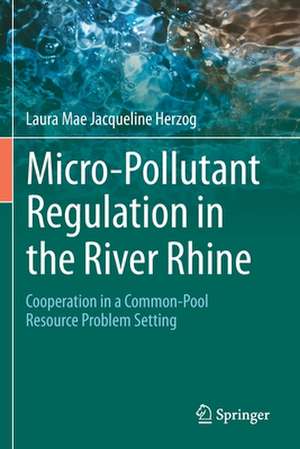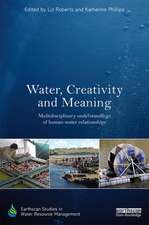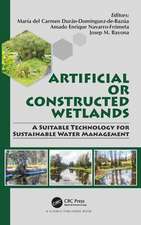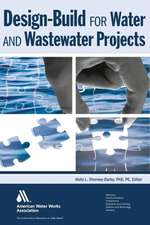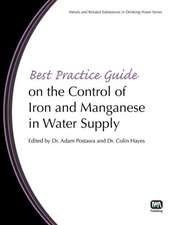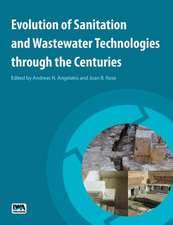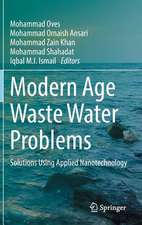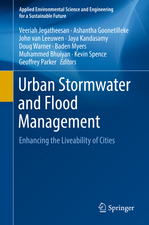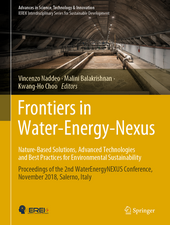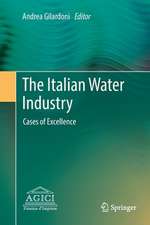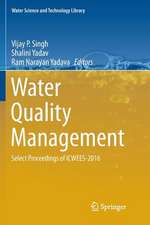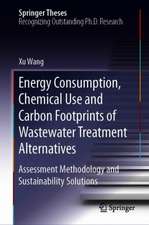Micro-Pollutant Regulation in the River Rhine: Cooperation in a Common-Pool Resource Problem Setting
Autor Laura Mae Jacqueline Herzogen Limba Engleză Paperback – 4 mar 2021
| Toate formatele și edițiile | Preț | Express |
|---|---|---|
| Paperback (1) | 643.65 lei 6-8 săpt. | |
| Springer International Publishing – 4 mar 2021 | 643.65 lei 6-8 săpt. | |
| Hardback (1) | 650.04 lei 6-8 săpt. | |
| Springer International Publishing – 4 mar 2020 | 650.04 lei 6-8 săpt. |
Preț: 643.65 lei
Preț vechi: 757.24 lei
-15% Nou
Puncte Express: 965
Preț estimativ în valută:
123.20€ • 133.87$ • 103.56£
123.20€ • 133.87$ • 103.56£
Carte tipărită la comandă
Livrare economică 21 aprilie-05 mai
Preluare comenzi: 021 569.72.76
Specificații
ISBN-13: 9783030367725
ISBN-10: 303036772X
Ilustrații: XXV, 336 p. 65 illus., 54 illus. in color.
Dimensiuni: 155 x 235 mm
Greutate: 0.51 kg
Ediția:1st ed. 2020
Editura: Springer International Publishing
Colecția Springer
Locul publicării:Cham, Switzerland
ISBN-10: 303036772X
Ilustrații: XXV, 336 p. 65 illus., 54 illus. in color.
Dimensiuni: 155 x 235 mm
Greutate: 0.51 kg
Ediția:1st ed. 2020
Editura: Springer International Publishing
Colecția Springer
Locul publicării:Cham, Switzerland
Cuprins
Chapter 1. The compelling nature of water pollution as a Common-Pool-Resource problem.- Chapter 2. Theories and theoretical contribution.- Chapter 3. Methods & Cases.- Chapter 4. Empirical analysis I: On cooperation.- Chapter 5. Empirical analysis II: On the emergence of cooperation.- Chapter 6. Empirical analysis III: On the consolidation of cooperation.- Chapter 7. Conclusion I: Theoretical insights on cooperation in CPR settings.- Chapter 8. Conclusion II.
Notă biografică
Laura Mae J. Herzog is a postdoctoral fellow at the Chair of Resource Management (Prof. Dr. Claudia Pahl-Wostl) at the Institute of Environmental Systems Research at the University of Osnabrück. She is interested in the different uses and the sustainable management of common-pool resources (CPR), in particular the common-pool resources water and land.
In her research, she investigates the interactions of humans with water and land resources as well as the influences of these interactions on the respective ecological system and the potential conflicts of interest emerging from such. She is interested in how such influences on nature can be shaped sustainably and how resource conflicts can be moderated and resolved. Taking into account the respective institutional framework, i.e. the laws and regulations that influence water and land management, and the state of the respective human-influenced ecosystem, Laura Herzog pursues an interdisciplinary approach, looking at the socio-ecological systems she examines from a socioscientific as well as a natural scientific perspective.
In her research, she investigates the interactions of humans with water and land resources as well as the influences of these interactions on the respective ecological system and the potential conflicts of interest emerging from such. She is interested in how such influences on nature can be shaped sustainably and how resource conflicts can be moderated and resolved. Taking into account the respective institutional framework, i.e. the laws and regulations that influence water and land management, and the state of the respective human-influenced ecosystem, Laura Herzog pursues an interdisciplinary approach, looking at the socio-ecological systems she examines from a socioscientific as well as a natural scientific perspective.
Textul de pe ultima copertă
This book investigates how actors organize in order to solve a water quality problem. Research on the use of environmental resources has mainly focused on the circumstances needed for users to self-organize or to maintain an already sustainable way of resource use. Few studies have investigated the reasons why actors start to cooperate when they are faced with an environmental problem. Actor networks in three regions of the Rhine catchment area are scrutinized; a) actors’ cooperation pattern when managing an environmental problem; and b) the factors that trigger actors in a common-pool resource situation to initiate cooperation. Water quality policy is analysed in two European countries – Germany and Luxembourg, and one non-European country - Switzerland, providing an overview of the distinctive measure applied in these regions with the aim of tackling the water quality problem of micro-pollutants in river surface water. Applying the social-ecological systemframework (SESF) devised by E. Ostrom and her colleagues and Social Network Analysis (SNA), the current book combines qualitative and quantitative methods to answer the question of why actors cooperate in the management process of an environmental problem like water pollution.
Caracteristici
A comprehensive application of the social-ecological system framework (SESF) to a large-scale social-ecological system A study of factors fostering actor cooperation in water quality management Offers an introduction to descriptive Social Network Analysis and application to case studies
